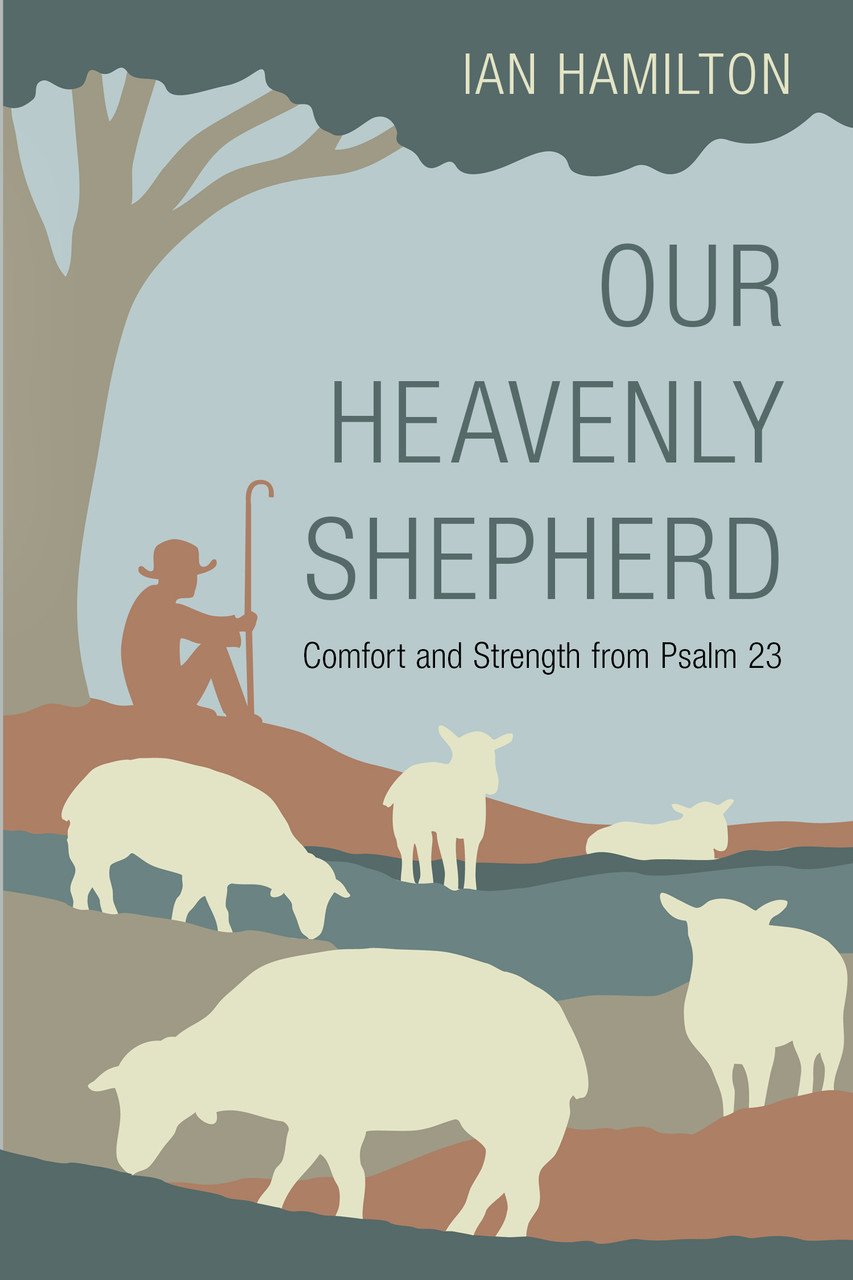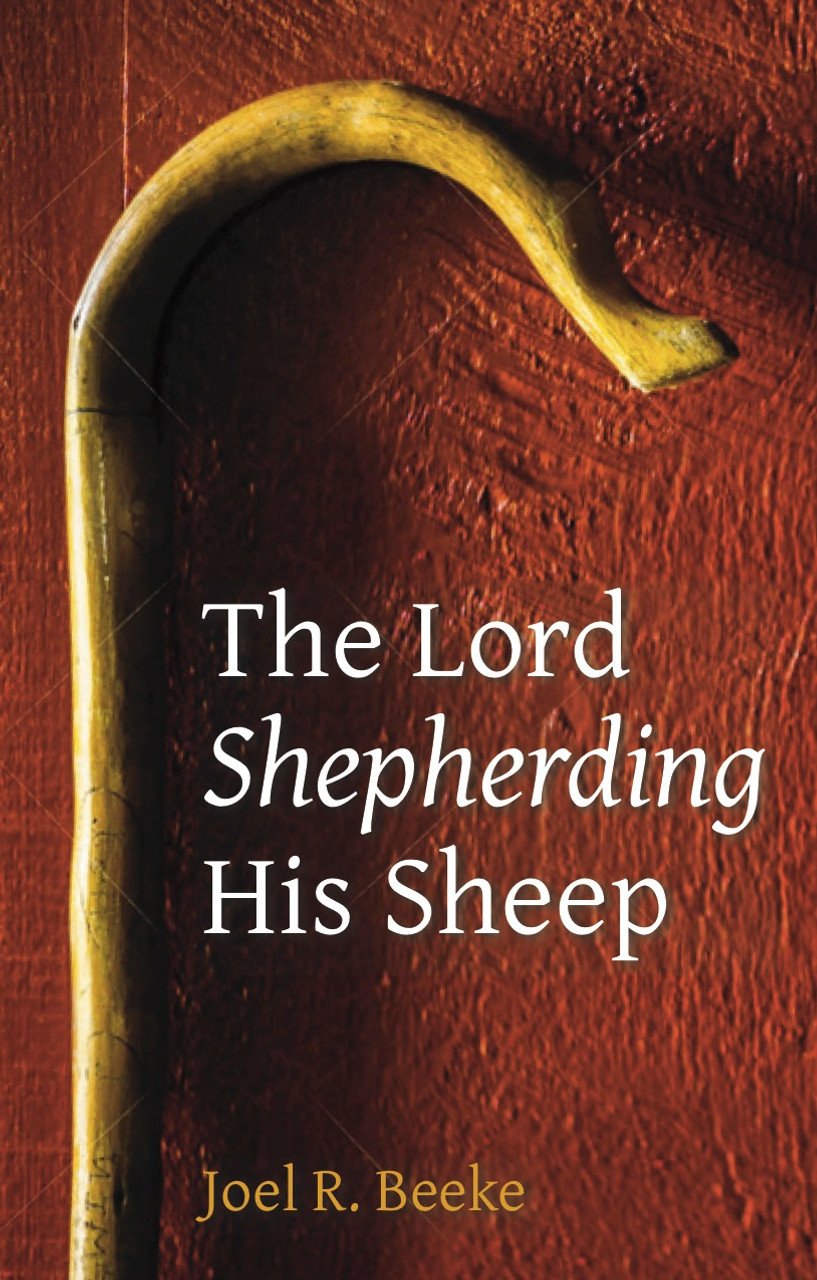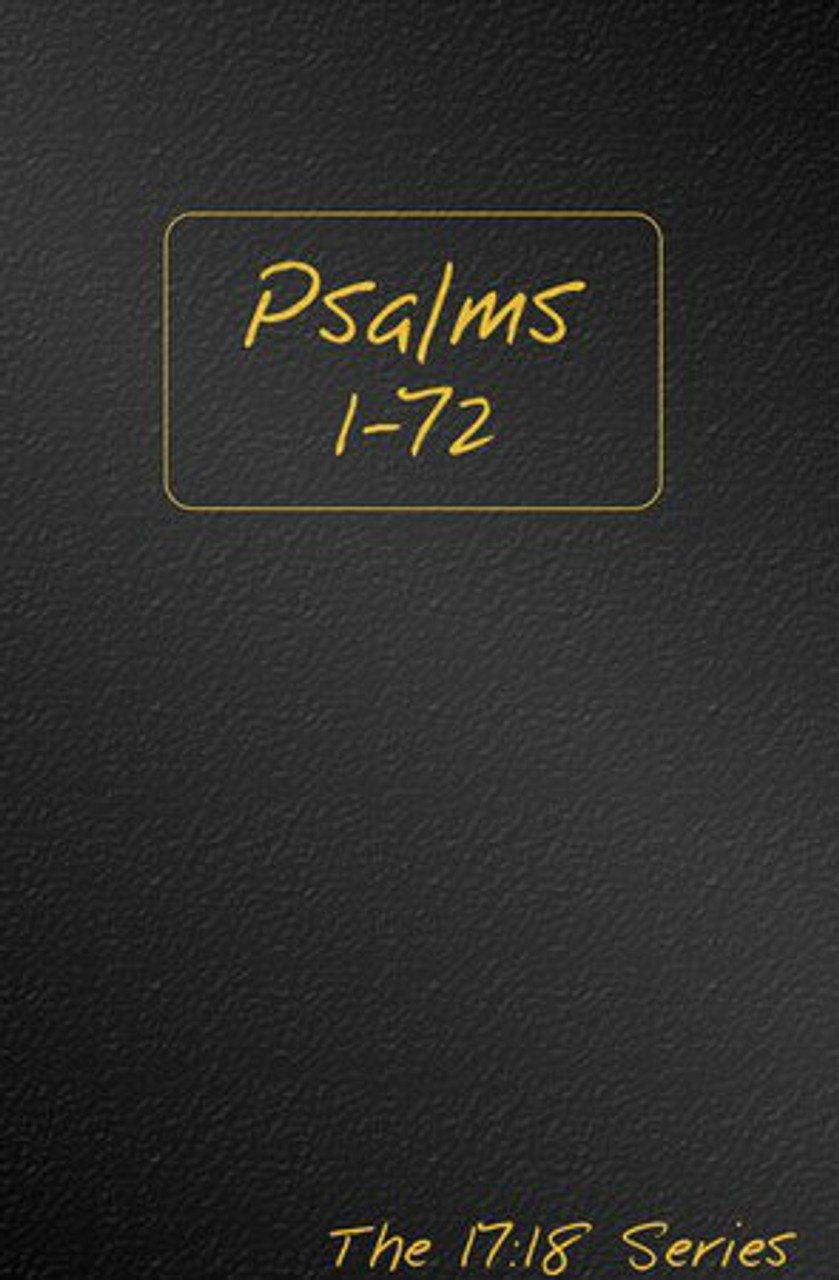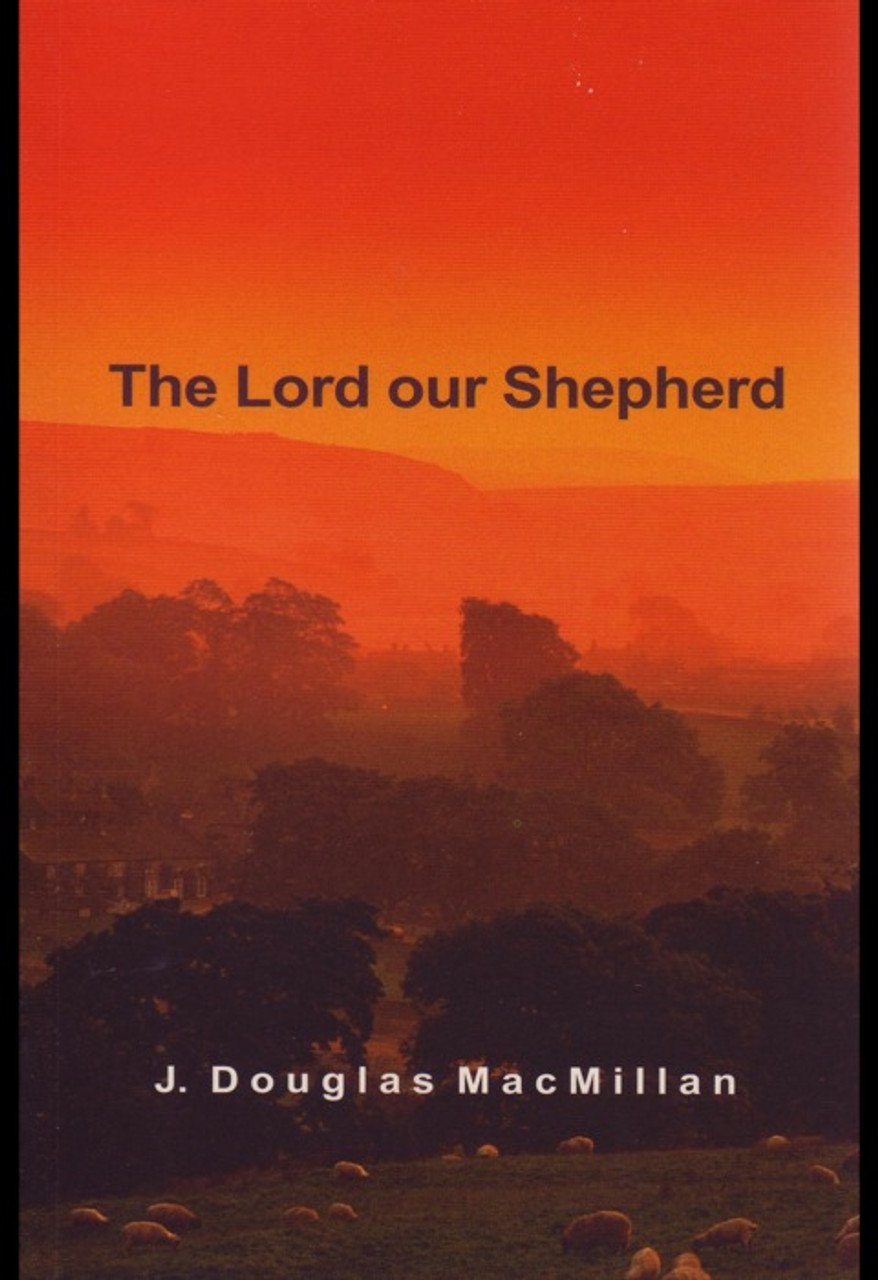Our Great Shepherd of Comfort and Restoration
The Lord is my shepherd;
I shall not want… (Psalm 23:1)
In spite of all the love and appreciation that Psalm 23 has received through the years, we sadly have little knowledge of its historical context. How thrilling it would be to know the exact situation that provoked the writing of such a beautiful and heart-warming psalm. Although we don’t know these details, there are two important facts about this psalm that we do know. First, we know that this psalm was written by David, as it begins with the brief superscript “A Psalm of David”. Second, we know that it serves as David’s personal testimony of the unwavering satisfaction that he possessed because of God. We see this in David’s profound confession in verse 1, “I shall not want.”
Perhaps you may wonder why this simple statement is so profound. Yet if you know anything about David’s life, it was constantly plagued by “want” and “lack. “As a shepherd boy, David often had to stay awake through the nights to watch his flock and fight off dangerous animals that tried to attack the sheep. As a youth, David also spent much time as an exiled criminal and lost his wife to another man. As the king, he endured civil wars, suffered the loss of multiple children, and lived the life of an exile when his own son rebelled against him.
Humanly speaking, David experienced frequent sorrow and constant lack. Yet, despite all of the grief he endured, David made the mind-blowing statement in Psalm 23:1 “Despite the difficult circumstances of my life, I am full, I am satisfied!”
In Psalm 23, we can’t help but be inspired by David’s testimony that his life lacked nothing of significance simply because he knew the Lord. David wanted his readers to understand that the Lord is truly enough to satisfy every legitimate need that we have because He is the great Shepherd of believers’ lives. And David, who had grown up as a simple shepherd boy, used his knowledge of shepherding to perfectly illustrate for readers how the Lord graciously meets all of our greatest needs.
The Lord Who Provides
First, David explained that God provides for our needs when, in verse 2, he wrote, “He makes me lie down in green pastures.” In ancient Israel, shepherds were responsible for feeding and hydrating their flocks. However, their job became very challenging at times, especially in the late autumn or winter seasons, when the grass of the pastures often became exhausted. For this reason, shepherds with larger flocks had to constantly relocate to provide for their sheep.
In Psalm 23, David also referred to the Lord as a shepherd, yet the one who is always able to provide for his flock. Unlike the Israelite shepherds, who often had to move their flocks to feed and quench them, and at times failed, David declared that the Lord never fails, since his sheep are always blessed with a safe place to lie down and an ample supply of food and water to sustain them. According to David, the sheep who are under the loving care of God, the true Shepherd, are always provided for bountifully.
More importantly, David expressed his full confidence and satisfaction in the Lord because he recognized God not only as a shepherd, but as “my shepherd!” David’s reliance upon the Lord is impossible for us to miss. It’s as if David proclaimed “The Lord has dealt with me in this manner! The Lord has been my shepherd and I have been a sheep under his all-inclusive care!” David was so confident in the Lord’s continuing provision for him that he boldly asserted in verse 6, “Surely goodness and mercy shall follow me all the days of my life, and I shall dwell in the house of the LORD forever.”
The Lord who Restores
Second, David confesses that God is a shepherd who also restores his flock. He writes in verse 3, “He restores my soul. He leads me in paths of righteousness for his name’s sake.” But what exactly does this mean?
A few years ago, I came across a short video clip of a shepherd pulling a sheep out of a tiny hole in the ground. The sheep had somehow strayed away from the flock, crawled into the tiny hole and became hopelessly stuck – stuck in a hole where he would have surely died if the shepherd hadn’t found him and saved him.
Not surprisingly, many people laughed at the stupidity of the sheep when they saw the video, but in truth, believers are often like that sheep which had gotten stuck in the hole. Just like the sheep, we often insist on going our own way, and we often get into terrible trouble by giving in to temptation and sin.
However, in verse 3, David shared another magnificent truth about God. He said that the Lord is a shepherd who also restores his sheep when they go their own way. He testifies that when one of the Lord’s sheep turns away from him and suffers as a result of their own sinful choices, we can trust that God will not leave that person to perish in their sins, but he will guide them back home!
And this is certainly what happened when, following David’s sin with Bathsheba, God sent the prophet Nathan to confront David. He restored David away from his sin, so that David was once again able to walk in fellowship with God.
In the second part of verse 5, therefore, David wrote, “You anoint my head with oil; My cup overflows.” He was testifying that God refreshes and invigorates his spirit like a fragrant oil poured on his head. For this reason, David declared that the Lord was enough for him because he is the God who restores!
The Lord who Comforts
Finally, in Psalm 23, David wrote that he was content in the Lord because the Lord was His great comforter. This is expressed in verse 4, when David declared, “Even though I walk through the valley of the shadow of death, I will fear no evil, for you are with me; your rod and your staff, they comfort me.”
As a child, I was deathly afraid of darkness and night. My parents often had to leave a light on for me so that I could fall asleep. If I had to walk in a dark place, I would fix my eyes on the ground in front of me and try to reject any fearful thoughts of scary things jumping at me from the darkness. I’m sure that I wasn’t the only boy who felt this way about darkness, and I suspect that there are many adults who still fear dark places. After all, it can be frightening to not see or know what’s around us.
In verse 6, David presented the image of a dark and dangerous valley, which he referred to as “the valley of the shadow of death.” If this was intended to be a reference to a true, literal location, we don’t know for certain. Regardless, though, I believe that the imagery that David was using is plain to see. After portraying himself as a young, helpless lamb, David referred to the darkest and most frightening moments of his life as walking through the ominous “valley”. He describes it as a place where he felt that danger surrounded him in every direction and death was drawing ever nearer to him.
Even though David had to sometimes journey through the “valley of the shadow of death” – as we all do – he made an astonishing assertion in verse 4: that, even then, in those darkest moments of life, he would “fear no evil.” What gave David the strength to say this? His answer: “…for you are with me; your rod and your staff they comfort me.” So, even as David faced terrible hardships and constant opposition from his enemies, he was still able to declare that there was no reason for him to be afraid since the Lord was always with him as his comforter.
David expressed his confidence in God’s comforting grace in verse 5, where he wrote “You prepare a table before me in the presence of my enemies; you anoint my head with oil; my cup overflows.” No matter what trials David had to face, he was confident that he could face them with the Lord on his side! None of life’s battles, no matter how painful and difficult, would overwhelm him because he knew that God would ultimately grant him the victory feast.
But What about Us?
It’s incredibly inspiring to read about David’s deep trust in God, but what about us? Can we, too, know the Lord as our provider, restorer, and comforter? Thankfully, the answer for us is “Yes!” Like David, the Scripture testifies that Jesus is the great shepherd of God’s people!
In the New Testament, Jesus is described as the “Good Shepherd” whose tender heart is turned toward us at all times and who delights in pouring out his love on all of his sheep just as the Father does (Matt. 9:35-37).
The Bible also tells us that Jesus is the shepherd who restores his lost sheep. In John 10:11, Jesus taught us, “I am the good shepherd. The good shepherd lays down his life for the sheep.” Jesus died on the cross and rose from the dead to save us from our sins, reconciling and restoring our fellowship with the Father.
Of course, Matthew 28:20 records Jesus’ glorious comfort to us – “And behold, I am with you always, to the end of the age.” Though these words were spoken as part of the “Great Commission,” God’s missionary call to all believers, his words also serve as a great source of comfort to Christians, reminding us that Jesus is always with us, no matter what circumstances we may face in life.
So, Jesus Christ is our Great Shepherd who, like the Father and the Spirit, shows his abundant love to all of God’s people by providing for them, restoring them, and comforting them in their times of need. He enables us to continually experience satisfaction, contentment, and joy in him and is therefore more than worthy of our obedience, worship, and love. So, we must each fix our eyes squarely on Jesus – our Savior, our Lord, and the one true light – and find our greatest peace in simply knowing him. We should all be able to say, just as David did, that “The Lord is my shepherd – and that’s enough for me.”










